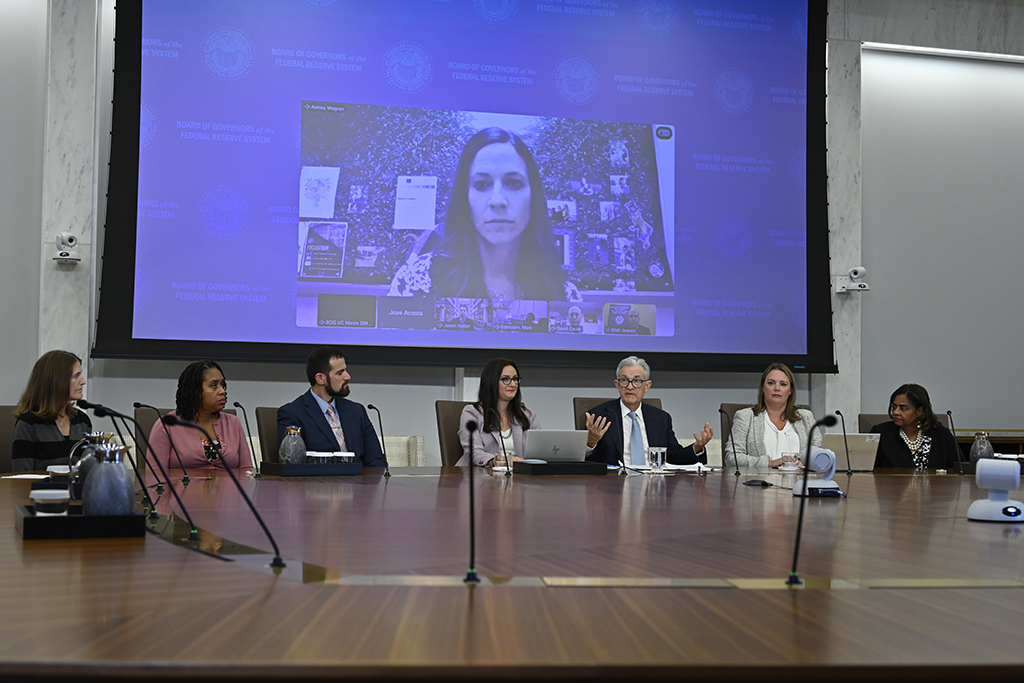What's New
Jo Freeman: There’s Plenty To Do at the RNC – If You Have the Right Credentials
by Jo Freeman
Every national nominating convention has plenty of auxiliary events, some authorized, some not. Getting space can be a challenge; getting the word out even more so. But they do it nonetheless. Press were given a RNC 2024 Master Event Calendar, which was updated a few days later. Events began on Sunday and ended on Thursday. The actual convention sessions were just one item on the list. The calendar said if an event was Open or Closed to press, and also whom to contact to register. I’m going to describe some of the events, including a couple I went to, and a couple I was turned away from.
Since my focus is on women, I obviously wanted to go to those events – if I could.
The National Federation of Republican Women is the largest grassroots Republican women's organization in the country with hundreds of clubs. Founded in 1938, its members made the phone calls and knocked on the doors that elected Republican candidates for decades. It’s Tuesday luncheon featured Arkansas Governor Sarah Sanders. The Master Calendar said it was SOLD OUT and they wouldn’t let me in. I was able to get into their lounge at the Fiserv Forum Wednesday evening, where I was repeatedly asked if I was a member, and if not, would I join. “I’m press,” I said. “I can’t join anything partisan.” I then said: “What brings you here?” On hearing that, finding anyone willing to chat with me was like pulling teeth.
Moms for Liberty met in a concert hall that afternoon. I had pre-registered, and I got in. From high in a balcony seat I listened to several people talk about the evils of transgenderism. It’s webpage says WE BELIEVE Power Belongs to the People. Sound Familiar? With a focus is on parental rights, it wants to “STOP WOKE indoctrination.”
Tuesday I went to “The New Mavericks” reception co-hosted by the Black Republican Mayors Association and the Georgia Republican Party. They honored Sen. Tim Scott, four Congressmen and two Georgia delegates – all male. There was only one mayor on stage, from Aurora, IL. The chair of the Georgia Republican Party was the one white man on the stage. At that event, women served; they didn’t speak. The RNC reported that 55 delegates to the 2024 convention are Black, up from 18 in 2016.
I missed the Independent Women’s Forum toast to “Women Who Make Our Country Great” because I went to Convention Fest: The Official Delegate Experience, which was held in the streets outside the Fiserve Forum and Baird Hall as well as some space inside Baird. To get to that one you not only needed a credential of some sort, but a USSS pass (which I have).
Concerned Women for America parked its pink bus across from the Baird Center the week before the RNC. No one was home. When Convention Fest opened on Tuesday afternoon, they set up a pink tent, from which its leaders preached to whomever passed by. It calls itself “the nation’s largest public policy women’s organization” but its focus is evangelical Christian. The slogan on the side of its pink bus captures this emphasis: “She Prays, She Votes.” A prayer precedes each sermon.
 Board of Governors of the Federal Reserve System: Something’s Got to Give by Governor Christopher J. Waller
Board of Governors of the Federal Reserve System: Something’s Got to Give by Governor Christopher J. Waller
Christopher J. Waller: "The data in the past few months has been overwhelmingly positive for both of the FOMC's goals of maximum employment and stable prices. Economic activity and the labor market have been strong, with what looks like growth well above trend and unemployment near a 50-year low. Meanwhile, there has been continued, gradual progress in lowering inflation, and moderation in wage growth. This is great news, and while I tend to be an optimist, things are looking a little too good to be true, so it makes me think that something's gotta give. Either growth moderates, fostering conditions that support continued progress toward our 2 percent inflation objective, or growth doesn't, possibly undermining that progress. But which is going to give — the real side of the economy or the nominal side?" more »
 U.S. Families' Experiences of the COVID-19 Pandemic: Evidence from the Survey of Consumer Finances
U.S. Families' Experiences of the COVID-19 Pandemic: Evidence from the Survey of Consumer Finances
"This FEDS Note summarizes high-level findings from the COVID-19 questions, showcasing differences in families' experiences of the first years of the pandemic across income and education groups and connecting these differences to income and net worth measured in the SCF. In particular, lower-income families and families with lower levels of educational attainment were more likely to experience a reduction in work, which could reflect their lower incidence of telework and higher incidence of a severe COVID-19 infection. These differential employment experiences appear to map well to between-survey income growth across the income distribution, especially after accounting for unemployment benefits, which were temporarily expanded over this period." more »
 US Government Reaches Settlement in Class Action Family Separation Case Seeking Injunctive Relief; “The practice of separating families at the southwest border was shameful.”
US Government Reaches Settlement in Class Action Family Separation Case Seeking Injunctive Relief; “The practice of separating families at the southwest border was shameful.”
"...the Justice Department, the Department of Homeland Security (DHS), and the Department of Health and Human Services (HHS) have worked with plaintiffs to identify class members and their children, developed plans for reunification, and reunified class members with their children. On Jan. 26, 2021, the Justice Department rescinded the Department’s 2018 zero-tolerance policy for offenses under 8 U.S.C. § 1325(a). In Feb. 2021, President Biden issued an Executive Order establishing the Interagency Task Force on the Reunification of Families, comprised of representatives from various federal agencies, including the Justice Department, DHS, and HHS. The parties have worked extensively to reunify families in accordance with the Executive Order and subsequent orders from the district court." more »
 Federal Reserve: Financial Stability in Uncertain Times, A Speech by Governor Michelle W. Bowman
Federal Reserve: Financial Stability in Uncertain Times, A Speech by Governor Michelle W. Bowman
Michelle W. Bowman:"Many central banks are facing challenging and uncertain times as they strive to restore price stability and promote financial stability. A stable and resilient financial system is essential for the effective transmission of monetary policy and for a healthy economy. Healthy economies foster financial stability and financial stability fosters healthy economies. It is essential that central banks facing high inflation bring inflation back to target. A failure to do so would only lead to greater financial stability risks through less certain and unstable economic conditions and through reduced central bank credibility. It is, therefore, necessary that central banks, in collaboration with other financial regulators as appropriate, develop and use supervisory and prudential regulatory tools to promote financial stability." more »






